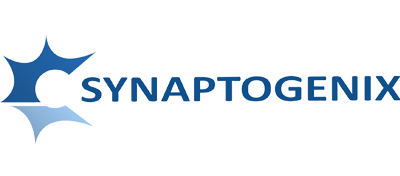Neurotrope to Conduct Study on Niemann-Pick Type C, a Devastating Rare Pediatric Disease
Pre-clinical study funded by SOAR-NPC to examine effects of bryostatin in NPC mice.
Newark, NJ, June 24, 2015 – Neurotrope, Inc. (OTCQB: NTRP) today announced that Neurotrope Bioscience, Inc., its operating wholly-owned subsidiary (“Neurotrope”), will conduct a preclinical study, in collaboration with a leading research institution, to examine the effect of bryostatin in Niemann-Pick type C (NPC) mice. The study is being funded by several family foundations under the auspices of Support Of Accelerated Research for NPC Disease (“SOAR-NPC”).
This planned study will examine the effects of various dosing regimens of bryostatin in NPC mice over a brief treatment period. Specifically, the in vivo study will seek to confirm previous in vitro studies that suggest bryostatin may be effective in correcting the cholesterol transport defect in NPC. Neurotrope expects the results of the study to be available in the third quarter of 2015.
“We welcome and appreciate our collaboration with SOAR and view this as a significant step forward in Neurotrope’s Orphan drug program. This study is designed to confirm, in mice, the results of recent NPC cellular studies. Reducing cholesterol accumulation is believed critical for the successful development of an effective therapy for NPC. We are very encouraged by results of the cellular study that suggest treatment with bryostatin can improve the cholesterol transport defect in NPC. We look forward to the results of this NPC mouse study in the coming months as we continue to work diligently to further the development of bryostatin as a therapeutic compound to treat this debilitating disease,” stated Charles S. Ramat, Neurotrope’ s President and Chief Executive Officer.
“This study is designed to examine the ability of bryostatin treatment to remove cholesterol from the brain which is critical for an effective therapy of NPC” stated Dr. Warren W. Wasiewski, Neurotrope’s Chief Medical Officer.
About Support of Accelerated Research for NPC Disease
SOAR-NPC was created in 2007 to accelerate therapy development for one of the most devastating lysosomal diseases, Niemann-Pick type C. Over the past five years, SOAR has made significant progress in developing a drug pipeline for NPC therapeutics and in the discovery of disease biomarkers to facilitate clinical testing of these drugs.
About Niemann-Pick Type C Disease
NPC mainly affects children who develop severe neurologic symptoms including gait disturbance and cognitive deficits early in life. There are approximately 3,500 patients in the US and a similar number in Europe. Patients with NPC have a gene defect that results in the loss of the “normal” NPC1 or NPC2 protein that is important for cholesterol trafficking. As a result of the gene defect, there is accumulation of cholesterol, and a number of other lipids such as sphingolipids, and gangliosides in various tissues, including the brain. Rates of disease progression and life expectancy vary widely; however, the majority of patients die between 10 and 25 years of age. Progressive neurological manifestations in NPC have a profound effect on quality of life for both the patients and their caregivers.
About Neurotrope
Neurotrope Bioscience Inc., the operating subsidiary of Neurotrope, Inc., was formed in October 2012 principally to license, develop and commercialize various novel therapeutic and diagnostic technologies from the Blanchette Rockefeller Neurosciences Institute (BRNI) which are focused on the development of conventional small molecules that are extraordinarily potent in the activation of the enzyme Protein Kinase C Epsilon (“PKCe”). PKCe has been shown to play a central role in the regrowth or repair of nervous tissues, cells or cell products. Neurotrope’s pipeline, under its license from BRNI, includes the drug candidate, bryostatin, for the treatment of Alzheimer’s disease, and a minimally invasive, diagnostic biomarker analysis system which would assess the presence of Alzheimer’s in patients. In addition, to the collaboration noted above Neurotrope also has a world-wide, exclusive license agreement with the Icahn School of Medicine at Mount Sinai located in New York City to utilize its proprietary information and data package for the use of bryostatin-1 in the treatment of Niemann-Pick type C Disease, a rare disease, mostly of children who are afflicted with Alzheimer-like symptoms. Also, the Company, under its BRNI license, has the rights to develop the licensed technology for other cognitive dysfunctions, including orphan diseases, such as Fragile X Syndrome.
About The Blanchette Rockefeller Neurosciences Institute
Located in Morgantown, WV, BRNI, at West Virginia University, is a unique, independent, non-profit institute dedicated to the study of memory and finding solutions to memory disorders. BRNI was founded in 1999 in memory of Blanchette Ferry Hooker Rockefeller, an Alzheimer’s patient and mother of U. S. Senator John D. Rockefeller IV. BRNI is operated in alliance with West Virginia University as well as in collaboration with other academic institutions.
Forward-Looking Statements
Any statements contained in this press release that do not describe historical facts may constitute forward-looking statements. These forward-looking statements include statements regarding the proposed study and goals, the expectation for timing of results, and continued development of use of bryostatin for NPC. Such forward- looking statements are subject to a number of risks and uncertainties and other influences, many of which the Company has no control over. Actual results and the timing of certain events and circumstances may differ materially from those described by the forward-looking statements as a result of these risks and uncertainties. Factors that may influence or cause actual results to differ materially from expected or desired results may include, without limitation, the Company’s inability to obtain adequate financing, the significant length of time associated with drug development and related insufficient cash flows and resulting illiquidity, the Company’s patent portfolio, the Company’s inability to expand the Company’s business, significant government regulation of pharmaceuticals and the healthcare industry, lack of product diversification, availability of the Company’s raw materials, existing or increased competition, stock volatility and illiquidity, and the Company’s failure to implement the Company’s business plans or strategies. These and other factors are identified and described in more detail in the Company’s filings with the SEC, including the Company’s Annual Report on Form 10-Q for the fiscal quarter ended March 31, 2015. The Company does not undertake to update these forward-looking statements.
Please visit www.neurotropebioscience.com for further information.
For additional information, please contact:
Robert Weinstein
Chief Financial Officer
973-242-0005
rweinstein@neurotropebioscience.com








